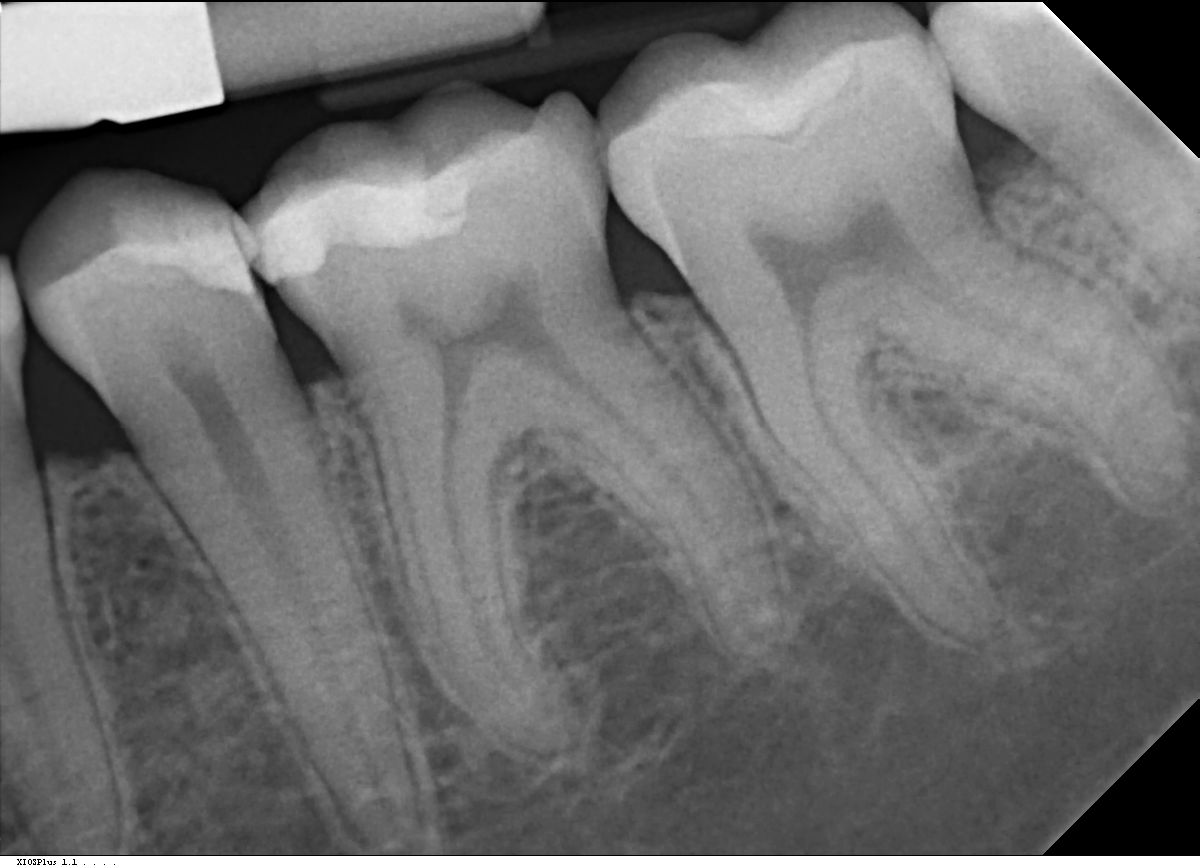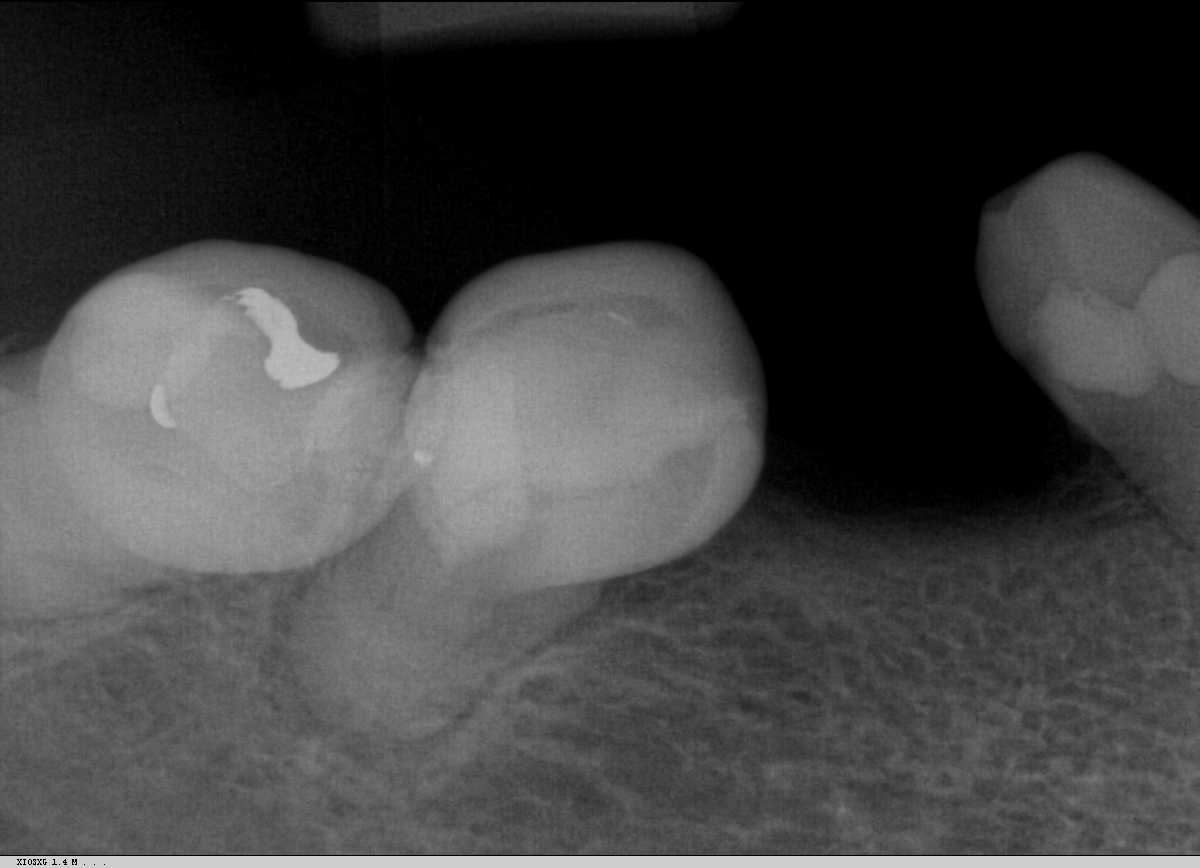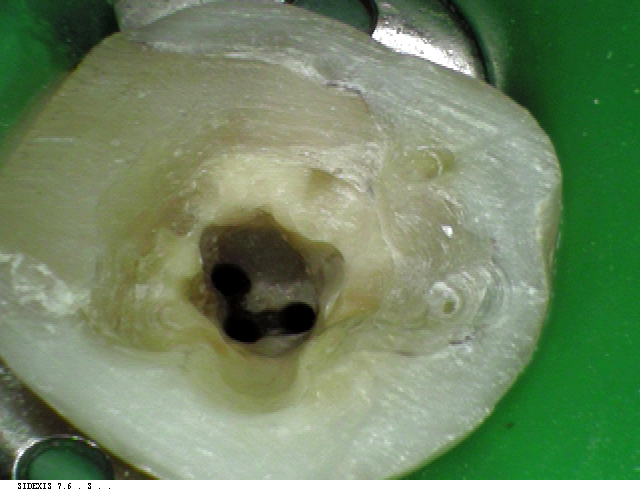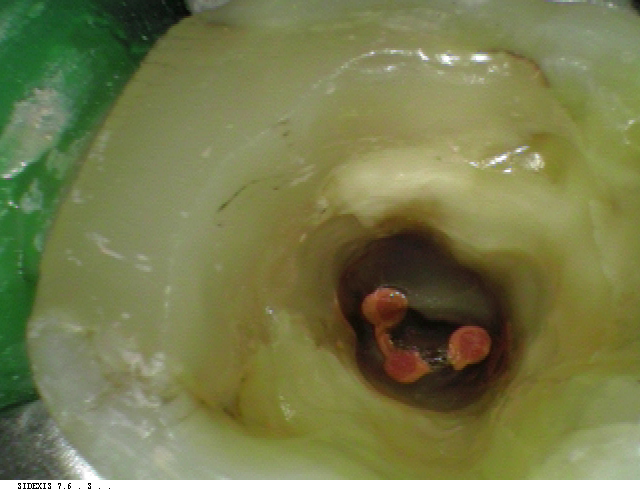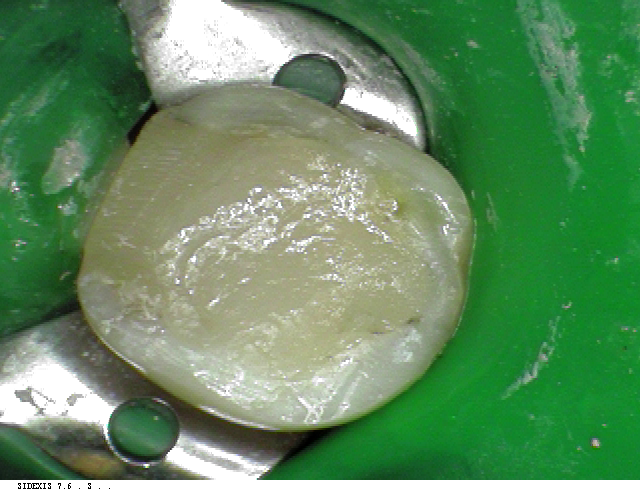A root canal treatment with calcified canals is a particular class of root canal work performed by Dr. Hawryluk Jr. A canal in a tooth is the space in the middle of a tooth root. This space typically contains pulp tissue, which is mainly neural and vascular in composition.
A canal in a tooth is classed as calcified when the canal space shrinks. If a calcified root needs treatment, it can be challenging to get even the smallest of tools down them. As the name suggests, calcium is present in the canals, which is challenging to cleanout. The incidence of calcified canals correlates with age. Overall the probability that a person will need a root canal is thankfully decreasing due to constant improvement in dental health in our society. However, the calcified class of root canal treatment is increasing due to demographic trends. Our community is aging, people are living longer, and people are more motivated to keep their teeth.
In root canal treatment, the inner pulp space of the tooth is cleaned out, sterilized, and filled with rubber.
To learn more about the reasons why a root canal may be needed and the steps that are involved, please visit us here:
Microscope-Assisted Root Canals – What to Expect
In addition to root canal spaces calcifying with age, it is also highly correlated with longstanding tooth decay. In many cases, if a person has significant tooth decay, the body will slowly shrink the size of the pulp in the canals to protect the pulp tissue from the breakdown. However, this shrinking also means the tooth has less access to blood supply (the pulp contains blood). Less blood means fewer immune cells in the tooth, which can ultimately lead to an increase chance of infection, necessitating the need for root canal treatment.
Finally, trauma from sports injuries often causes a tooth to calcify. When a tooth suffers a blow, it can disrupt the blood supply, and in many cases, the tooth will go dark. The body’s response is often to shrink the pulp space in the tooth by calcification (to prevent bacteria buildup). It is as if the body was trying to do a ‘natural’ root canal treatment on its own. However, in many cases, the body cannot naturally shrink (calcify) the space small enough to completely seal the tooth. Consequently, there can be a little warm moist space present in the tooth with no blood and immune cells. Whenever this is the case, bacteria can surface and necessitate the need for root canal treatment on a calcified tooth.
Cleaning out a calcified root canal space takes time and patience, and it is a much more skill dependent procedure compared to a routine root canal procedure. It is much easier for complications such as a separated root canal instrument or a block in the canal to arise. Dr. Hawryluk takes a very systematic approach and slowly will negotiate down the root canal system and flush out the debris contained within. There are several nuances with the calcified system. One is the canal can opening can be hard to find, and the clinician will have to look for slight shades of grey in the tissue, which can signify a potential canal opening is nearby. To overcome this, Dr. Hawryluk uses the Global Dental Microscope to locate canals even when they are more elusive at first glance. Small ultrasonic instruments remove the calcium deposits in the canal openings. Also, irrigating the canals with sodium hypochlorite and EDTA will help dissolve any calcifications. Dr. Hawryluk will assess your situation and will plan your treatment accordingly.
If you have a calcified tooth needing root canal treatment St. Lawrence Dentistry will inform you in advance and let you know how long the treatment may take. In general, teeth with single roots can take 1 hour and molar teeth for about an hour and a half. Since calcified teeth take longer to treat, Dr. Hawryluk often will offer very mild sedation with Ativan tablets for your comfort. In general, patients who have Ativan for their treatment feel very relaxed and are less focused on how long their treatment may take. You cannot drive after taking Ativan, so please arrange someone to drive you home if you are considering Ativan for your treatment.
Root canal treatment should be a comfortable experience, even when the canals are calcified. If you live in the Mississauga area and need a dentist, please call us.



